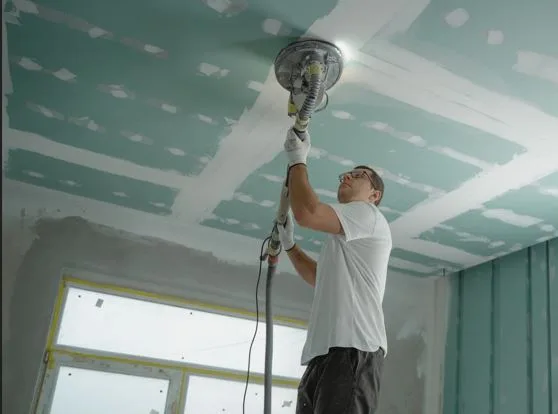Ways to Save Money on Household Repairs in Australia
Owning a home in Australia is both rewarding and challenging. One of the major expenses homeowners face is household repairs, plumbing mishaps, electrical faults, appliance breakdowns, roof leaks, and more. These issues are often unavoidable and can become costly if not handled wisely. The good news is that with a little planning, know-how, and smart decision-making, you can save a significant amount of money on household repairs.
One way to cut costs is to post your job on ServiceTasker and receive multiple quotes before deciding who to hire. This allows you to compare pricing and find the right professional for the job, without overpaying.
Here are more practical ways to cut costs on household repairs in Australia without compromising on safety or quality.
- Learn Basic DIY Skills
Not every repair needs a professional. Small tasks like fixing a dripping tap, patching a hole in the wall, replacing door handles, or unblocking a drain are simple enough for most homeowners to do themselves.
Why DIY?
- Save on labour costs, which often make up the majority of a tradie’s bill.
- Immediate fixes without waiting for someone to come out.
- Learn valuable skills that reduce long-term costs.
Where to Learn:
- YouTube tutorials
- Bunnings workshops
- Community courses (often run by councils or TAFEs)
Caution: For electrical or major plumbing work, always hire a licensed professional, it’s illegal and dangerous to do it yourself.
- Buy Materials Yourself
Some tradespeople charge a premium for sourcing and supplying materials. You can often save money by purchasing the materials yourself.
How to Do It:
- Ask for a list of required parts before the job begins.
- Compare prices at Bunnings, Mitre 10, or online retailers like Amazon Australia and eBay.
- Look out for sales, clearances, and bulk-buy discounts.
Tip: Always confirm that what you buy meets Australian safety standards.
- Get Multiple Quotes
Never go with the first quote you receive, prices can vary significantly between tradies.
Best Practices:
- Get at least three quotes for any substantial job.
- Use services like hipages, Airtasker, ServiceSeeking, or Oneflare to compare reviews and prices.
- Ask for a detailed breakdown of the quote to understand what you’re paying for.
Warning Signs to Watch Out For:
- Vague estimates without itemised costs.
- Requests for large upfront payments.
- No ABN or license number provided.
- Use Licensed and Insured Tradespeople
It might seem cheaper to go with a “mate of a mate” who charges cash and has no license, but this can cost more in the long run.
Risks of Unlicensed Work:
- Poor workmanship
- Voided insurance
- Fines (you can be penalised for hiring unlicensed workers in some cases)
Use ABN Lookup and your state’s licensing authority to check credentials. For example:
- NSW: NSW Fair Trading
- VIC: VBA (Victorian Building Authority)
- QLD: QBCC (Queensland Building and Construction Commission)
- Schedule Regular Maintenance
Prevention is cheaper than cure. Small issues become expensive if ignored.
Examples of Preventive Maintenance:
- Clean gutters regularly to avoid water damage.
- Service your aircon annually to prolong its life.
- Check roof tiles after storms.
- Reseal bathrooms to prevent water damage and mould.
Keeping up with routine tasks can prevent emergencies that cost thousands.
- Bundle Jobs Together
If you need multiple small tasks done, it’s more economical to get them all done at once.
Why Bundling Saves:
- You pay one call-out fee instead of several.
- Tradies often offer a discount for larger jobs or longer bookings.
Prepare a list of things that need doing and discuss the whole lot with your tradesperson upfront.
- Tap Into Government Rebates and Programs
There are government initiatives and rebates in Australia that can significantly reduce your out-of-pocket expenses for certain home repairs and upgrades.
Examples:
- Energy-efficient appliance rebates (varies by state)
- Solar panel subsidies and interest-free loans
- HomeBuilder Scheme (when active)
- State-specific programs for seniors and low-income earners
Check your state or territory’s official government websites regularly for updates.
- Use Your Home Insurance Wisely
If a repair is related to accidental damage, storm damage, or other insurable events, your home and contents insurance may cover it.
What You Should Know:
- Understand your policy’s inclusions and exclusions.
- Document damage thoroughly with photos and written reports.
- Keep receipts for repairs in case you can claim them later.
Tip: Avoid claiming for very small repairs, multiple claims may raise your premiums.
- Join a Local Community Group or Buy Nothing Group
Online local communities, like those on Facebook Marketplace or Buy Nothing groups, are great places to:
- Borrow tools
- Get second-hand materials for free
- Ask for recommendations on affordable tradies
You can often find someone willing to help for the price of a coffee or a return favour.
- Negotiate!
It’s perfectly acceptable to negotiate with tradespeople in Australia. You can ask:
- “Is that your best price?”
- “Can you do a discount if I pay cash?” (But ensure it’s still legal and you get a receipt)
- “Can you offer a discount for seniors/pensioners?” (Some do!)
The worst that can happen is they say no, but often, you’ll save a bit by simply asking.
Final Thoughts
Household repairs are an unavoidable part of home ownership in Australia. But that doesn’t mean they have to be a financial burden. By being proactive, resourceful, and strategic, you can significantly reduce your repair costs without cutting corners on safety or quality.
Here’s a quick recap of the smartest ways to save:
- Learn and do basic DIY
- Buy your own materials
- Compare multiple quotes
- Use licensed professionals
- Stay on top of maintenance
- Bundle repair jobs
- Check for government rebates
- Use insurance wisely
- Leverage community resources
- Negotiate every time
With these tips in your back pocket, you’ll be well-equipped to keep your home in top shape, without draining your bank account.






